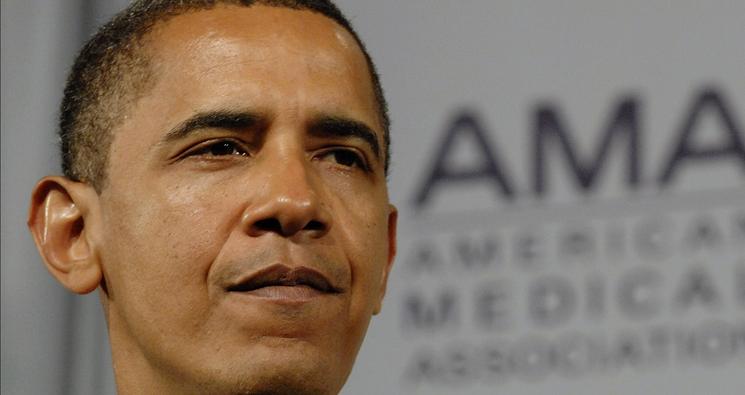Day One of Supreme Court ObamaCare Oral Argument: The Anti-Injunction Act
Today, March 26, 2012, the United States Supreme Court will begin to hear oral argument in the ObamaCare case. The Court will hear a total of six hours worth of oral argument over the next three days, March 26-28.
During the three days, the Court will consider four issues: (1) whether the individual mandate (which requires Americans to buy health insurance from private companies for the rest of their lives or pay annual penalties) is constitutional; (2) whether the individual mandate is severable from the rest of ObamaCare and, if not, whether the entire law should be invalidated; (3) whether the Medicaid expansion is constitutional; and (4) whether the Anti-Injunction Act ("AIA") applies to this case.
Today, the Court will consider the AIA issue. Tomorrow, March 27, the Court will hear oral argument on the individual mandate issue, and it will hear oral argument on the severability and Medicaid issues on Wednesday, March 28.
The Court has set aside one and one-half hours of oral argument for the AIA issue. If the Court determines that the AIA applies, the Court (and other federal courts) would be barred for several years from deciding the individual mandate and severability issues. Application of the AIA would not prevent the Court from considering the Medicaid expansion issue now.
The AIA was enacted in 1867 to stop lawsuits that seek to prevent the federal government from assessing and collecting taxes. Under the AIA, a person subject to a truly revenue-raising tax provision cannot file a lawsuit before the tax has been assessed or collected; if he does, a federal court must dismiss the lawsuit. The person generally must first pay the tax that the federal government claims is due and then file a lawsuit to challenge the legality of the tax and obtain any refund.
For the Supreme Court to decide that the AIA applies to the ObamaCare litigation, it would have to conclude that the penalty designed to enforce the individual mandate is a tax. If the Court decides that the AIA applies, the Court would be unable to decide the constitutionality of the individual mandate and its severability for several years.
The individual mandate takes effect on January 1, 2014. For a person refusing to purchase health insurance after that date, his penalty is due and owed at the time he pays his federal income taxes. That would be no later than April 15, 2015. Thereafter he could pay the penalty and then file a lawsuit challenging the constitutionality of the mandate and penalty.
A lawsuit filed in 2015 would reach the Supreme Court in 2017 at the earliest. Assuming that ObamaCare is not repealed before then, the Supreme Court would not likely issue a decision on the individual mandate and severability for at least three years after the mandate has been implemented and enforced.
For more information about the options the Court has in resolving the ObamaCare case, read my previous post here.
The American Center for Law & Justice filed an amicus brief on the AIA issue, which is available here.
The audiotape of the AIA oral argument will be available this afternoon on the Supreme Court's website by 2:00 p.m. eastern time. You can access the Court's website here.
3.26.2012 Update: Based on the Justices’ questions today, it is reasonable to conclude that there are not five Justices (the number needed for a majority ruling) who believe the Anti-Injunction Act prevents them from deciding the constitutionality of ObamaCare. This is the conclusion the American Center for Law & Justice has urged the Court to reach.
Tomorrow, March 27, the Court will consider the individual mandate issue, which is the essential component of ObamaCare. Check our website in the morning for a preview of the individual mandate issue.
